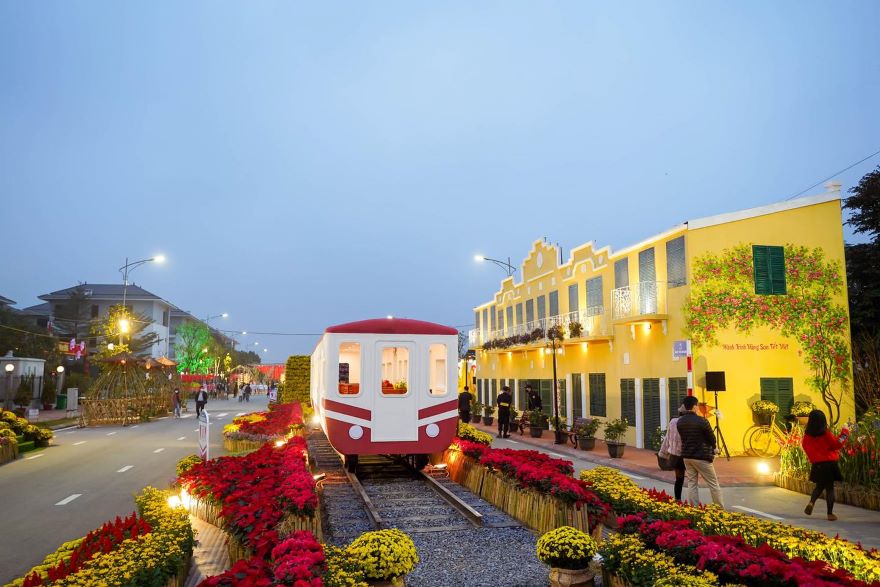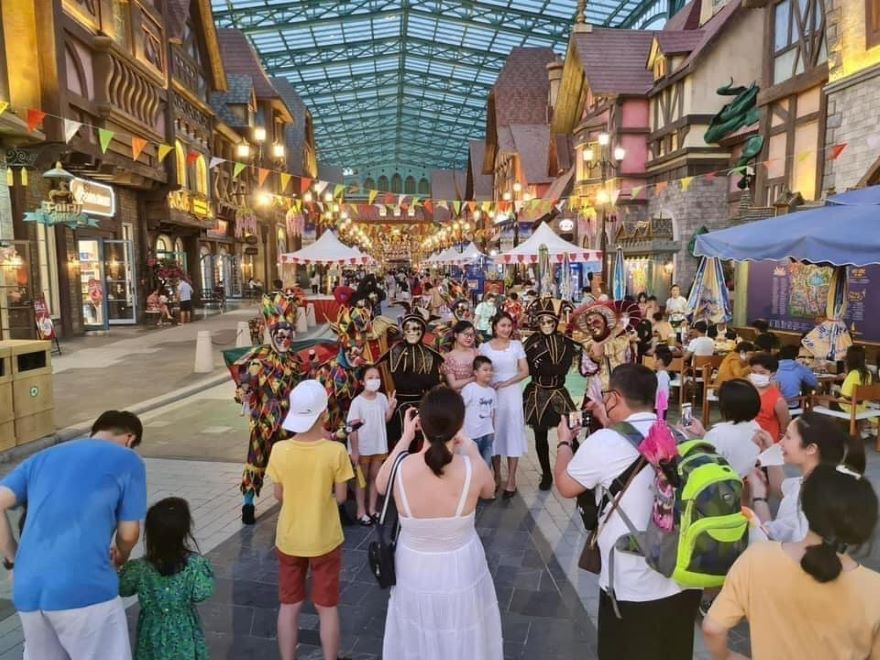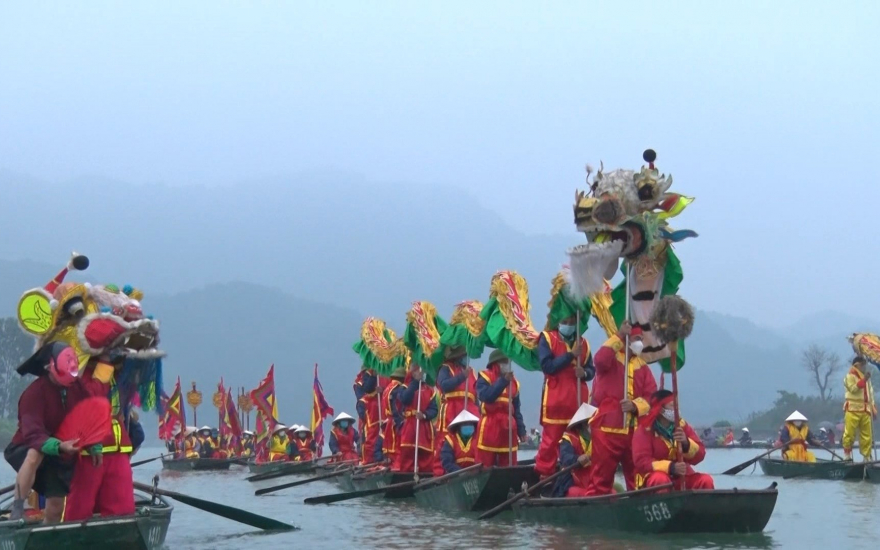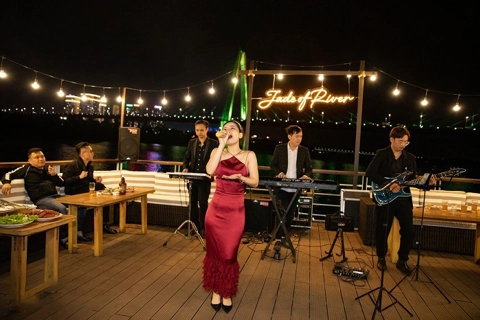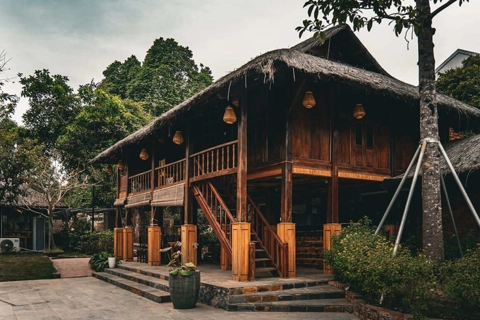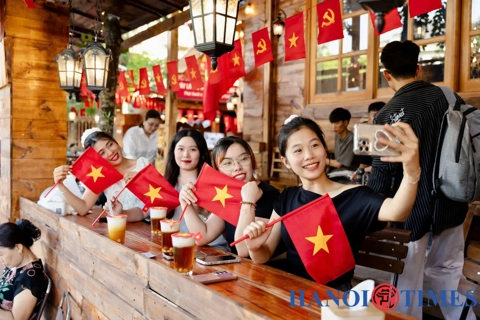Post Covid-19 pandemic: Vietnam tourism industry revived
Hanoi welcomed over 105,000 visitors while many localities are overloaded with tourists during the Lunar New Year.
According to the Director of the Hanoi Department of Tourism Dang Huong Giang, the capital welcomed over 105,000 visitors during the seven days of the Lunar New Year (from January 31 to February 6).
Unevenly distribution of travelers in Hanoi
| The newly established Pont De Long Bien Walking Street in Mailand Creative City in Hanoi. Photo: Huong Nguyen |
Travel destinations in Hanoi’s outskirts that attract the most domestic tourists include Ba Vi National Park with 13,000 travelers, Tan Da Spa Resort (1,000), Hong Van Bonsai Village (700), and Ao Vua Tourist Area (300).
“People who are from Hanoi and neighboring provinces such as Ha Nam, Thai Binh, Vinh Phuc, among others, usually travel in small groups or with family,” Giang added.
In addition, the average occupancy of accommodation reached 22.4%, up 6.1% over the same period in 2021.
However, some famous destinations in Hanoi’s downtown such as Hoan Kiem Lake, Hanoi’s Old Quarter Area, Red River Rock Flower Garden, West Lake Flower Valley, and other traditional craft villages including Bat Trang Pottery Village, Van Phuc Silk Village or Thiet Ung Wood-art Craft Village saw a dramatic decline of travelers this year.
Despite attracting a large number of visitors, the purchasing power at large shopping centers in the city has plunged, down by about 50% compared to the same period in 2021.
Signs of tourism revival in some localities
| Vietnamese and foreign travelers alike flocked to Phu Quoc Island for Tet Holiday. Photo: Huong Nguyen |
As many tourist attractions in Hanoi remained closed during Tet, tourists from Hanoi flocked to monuments and scenic spots in nearby localities, making a drastic travel increase in those localities.
According to the statistics of the Hai Duong Department of Tourism, dozens of thousands of visitors flocked to monuments, scenic spots, and temples there in five days of the Tet Holiday (from February 1 to 5)
The most frequented attractions during Tet were Con Son - Kiep Bac Special National Monument with 3,000 travelers, An Phu - Kinh Chu - Nham Duong tourist destination complex (2,000), Mao Dien Temple of Literature (1,500), among others.
Located in the Central Highlands, Da Lat city welcomed 25,000 visitors, of them, more than 2,000 were foreigners. It is expected that the number of travelers may reach over 85,000 people in the coming days.
In the southern part of Vietnam, according to a report by the Ca Mau Department of Culture, Sports and Tourism, nearly 72,500 people were visiting Ca Mau in five days, starting from January 31 to February 4, an increase of 3.43% over the same period last year.
Meanwhile, the Department of Tourism of Kien Giang Province informed that from January 29 to February 4, the total number of visitors to Kien Giang was 82,000 people. Phu Quoc Island alone welcomed about 66,990 travelers and 2,700 of them were international visitors.
Every day during Tet, there were around 60 flights arrived at Phu Quoc International Airport. Besides, travelers also visited the Island City by sea.
Bai Dinh Pagoda Festival inaugurated
| The opening ceremony of Bai Dinh Pagoda Festival in Ninh Binh Province. Photo: VOVTV |
The annual festival was launched on February 6 by the Vietnam Buddhist Sangha of Ninh Binh Province, kicking off a vivid festive season for Buddhists in the northern part of Vietnam.
The event saw the participation of dignitaries from the Vietnam Buddhist Sangha and its provincial chapter and thousands of pilgrims.
Bai Dinh Pagoda is Southeast Asia’s largest Buddhist complex. It consists of several temples and over 500 intricately carved statues of Buddha, including one that’s made of bronze and is 10 meters in height.
Set within the Gia Sinh Commune, it attracts a huge crowd of local devotees and travelers looking to pay their respects and have their fortune told by the resident monks.

